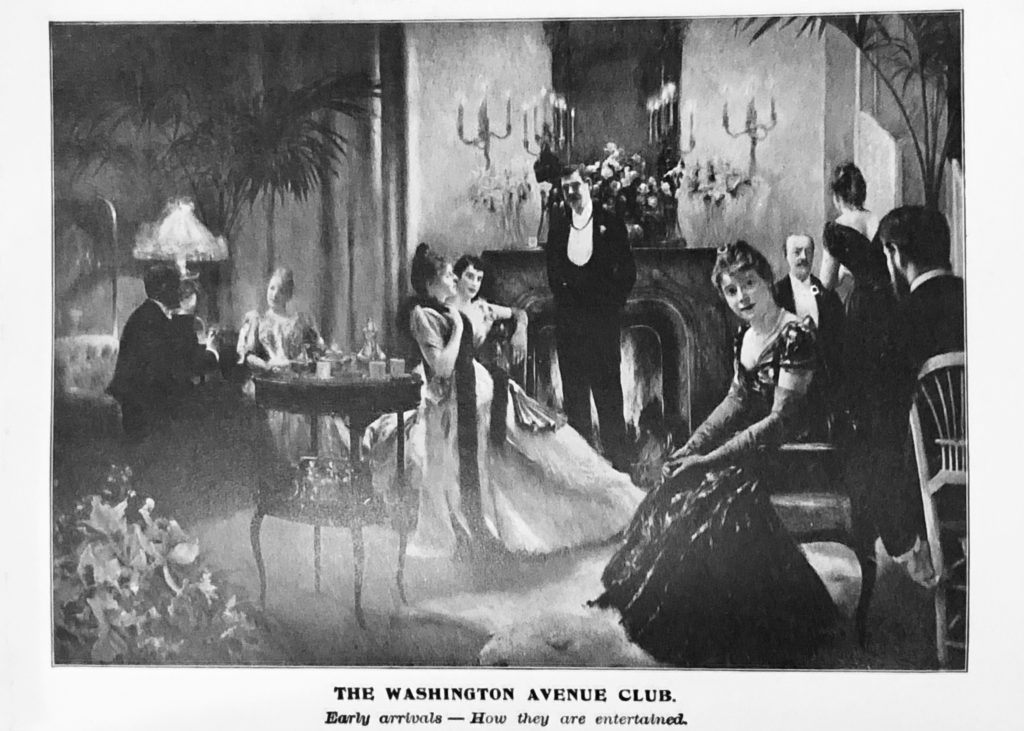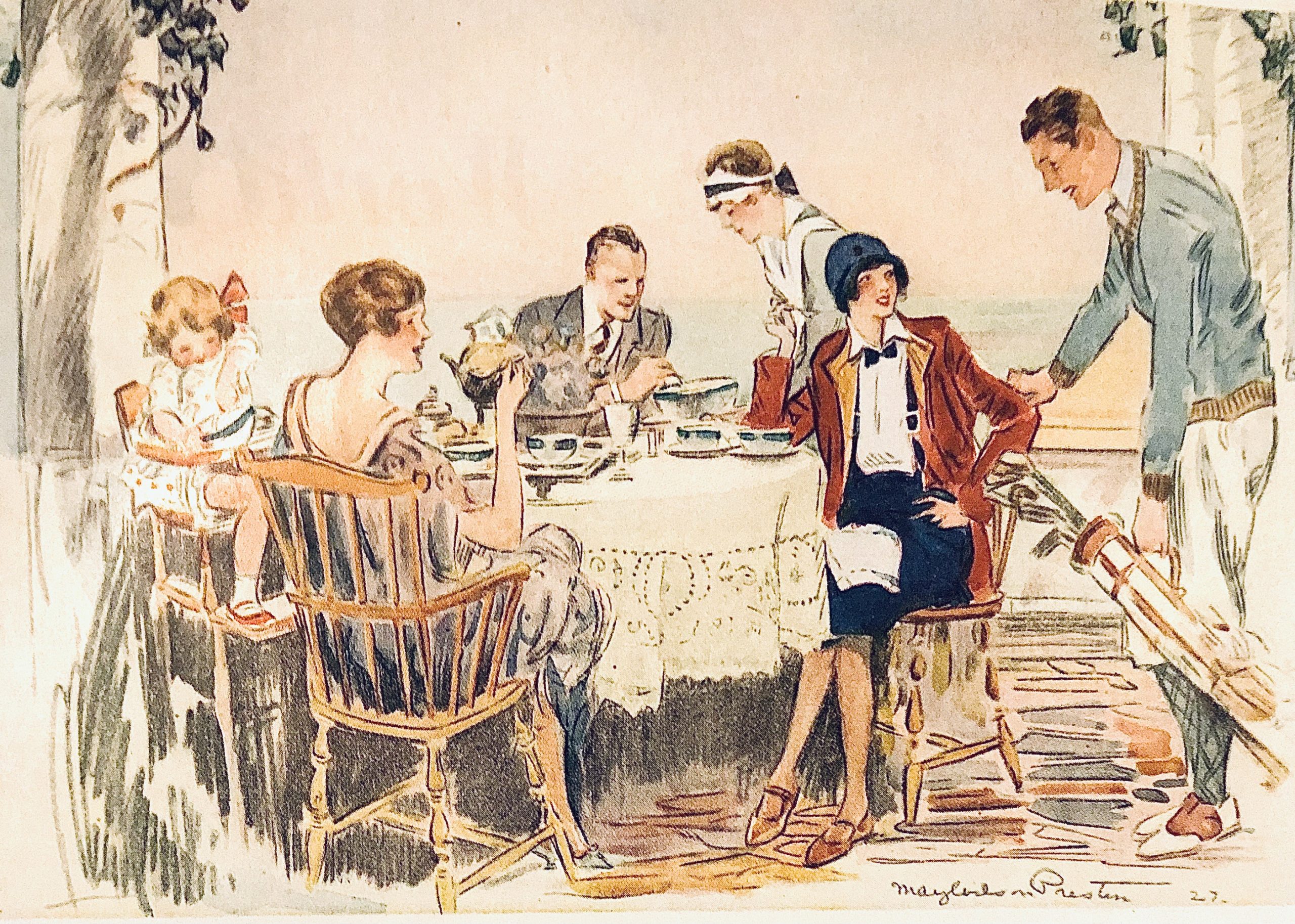In the book, Social Etiquette of New York, (1879) the author tells guests “To be prompt, but not too early, to dinner, is a rigid necessity that requires no explanation. Five or ten minutes are the customary interval between arriving and the dinner hour. Earlier, the hostess may not be able to be in waiting to welcome her guests. Later than this, time for introductions, and arrangements for escorts to the table, may not be sufficient.”
According to Sheldon’s Guide to Etiquette, (1901) “Guests should arrive from five to fifteen minutes before the hour mentioned in their invitations, in order to pay their respects to host and hostess before the dinner is announced.”
And just to give you an idea of how two contemporary books might lead to confusion, only one year later Etiquette for Men, (1902) by G.R. M. Devereux says, “Unpunctuality is an unpardonable sin in the eyes of host and hostess, and guests should be most careful to arrive not more than five or ten minutes after the hour named on the card. A quarter of an hour’s grace is usually allowed, and an invitation for 7:30 means that dinner will be served at 7:45. But all the guests should have arrived before that.”
So, if there is fifteen minutes grace with the dinner time, does that mean one shows up five to ten minutes before the time on the invitation or five to ten minutes after? These were the inconsistencies that kept the social climber up nights.

Now a days, very few people want you to show up early. Introductions aren’t made in a formal manner and no escorts are needed to take the ladies from room to room. Rarely will you encounter such a formal dinner that the food will be spoiled for having to wait one minute, but keep a timely arrival in mind if anyone invites you to a dinner that is designated to have multiple courses. Courses served in order have to be timed out perfectly, so delaying the dinner while the host waits for you to arrive will make you very unpopular.
For any other dinner in America, most people are expected to show up on time or around five to ten minutes after the appointed hour, but there are many places that this is a little more lax. In my native Southern California, people show up ten to fifteen minutes late. On time is considered a little over-eager. In France, if you don’t show up at least 15 minutes late, you might run into your host in their underwear. Indeed, it’s considered rude to show up on time. Once in Paris, I arrived shame-faced a half hour late, only to find I was the first to arrive. The host commented that I was “charmingly American in showing up so early.” If you’re in Germany or Switzerland, you’re expected to show up on time, as lateness is not just considered rude, but a bit of a character flaw. If you’re in a new city and in doubt, ask a local or your host.
Cocktail parties are a little different, you can show up a little late and rarely will hosts notice. Indeed, they’ll be grateful if everyone doesn’t pile up at the door right at the appointed hour. Just don’t be too late.
Open houses may give you a start time, but arrival time is entirely up to you. Just don’t arrive fifteen minutes before a designated end time. You’re hosts may be ready to wrap things up, but your arrival may leave them feeling pressured to keep things going later than they had hoped.
The exception to these rules is the children’s party. Show up on time. Parents usually have games and entertainments planned, they may be paying a clown or a petting zoo by the hour and if everyone shows up late they’ve wasted a lot of money.
I hope you’re receiving loads of invitations to wonderful parties. Sending you much love, Cheri



